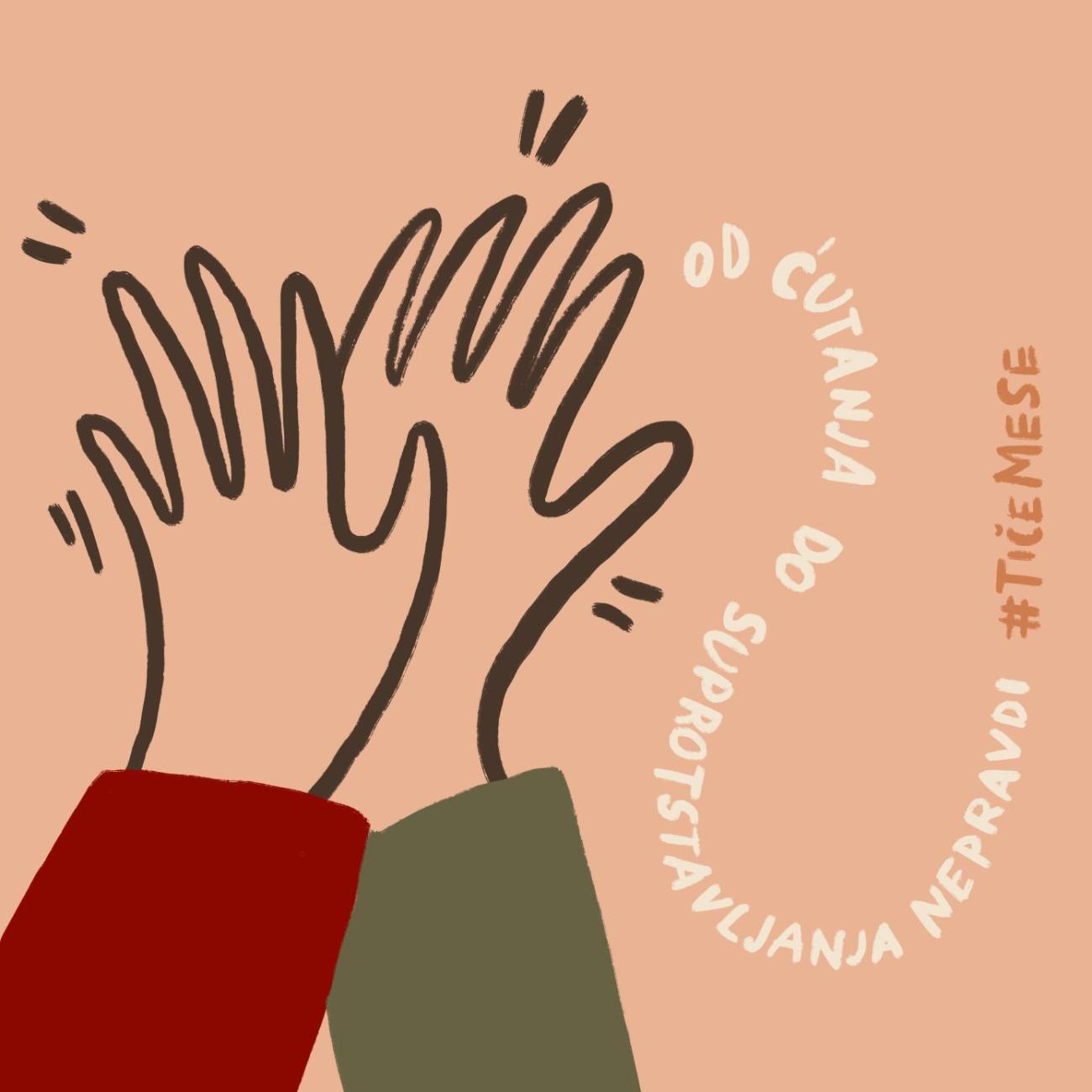Confronting instead of Looking Away - Ending Sexual Harassment Is My Business

To mark the “16 Days of Activism against Gender-Based Violence”, UNDP in Serbia is launching the 4th edition of the campaign “Tiče me se” (It IS my business).
Belgrade, 25 November 2022 - To mark the “16 Days of Activism against Gender-Based Violence”, the United Nations Development Programme (UNDP) in Serbia is launching the fourth edition of the campaign “Tiče me se” (It IS my business), as a step towards creating a society with zero tolerance to violence against women. This year’s campaign is aimed at encouraging everyone to provide support to women experiencing sexual harassment.
Using Instagram, Facebook and Twitter as outreach platforms, the campaign #TičeMeSe (It IS my business) will seek to raise public awareness of this form of violence against women, by providing concrete guidance on how to recognize sexual harassment, advice on how to stop it and report it, as well as how to provide support to victims.
Women and girls face verbal and non-verbal sexual harassment in public spaces, at work, at schools and universities, online, and even at their homes. Examples include catcalling in the street, sexual comments on their physical appearance, inappropriate name-calling, unwanted physical contact and inappropriate gestures, as well as unwanted sexual messages and advances, or posting private photos and videos on social media.
According to the OSCE, 42% of women in Serbia over the age of 15 have been exposed to some form of sexual harassment. Although this form of violence was introduced into Serbia’s Criminal Code in 2017 as a criminal offence, it has not been sufficiently recognized as unacceptable behaviour, and has even been accepted as a “normal” and “inevitable” part of the reality of girls and women Moreover, since sexuality is still a social taboo that involves the risk of long-term stigmatization, sexual harassment is less often reported than other types of violence.
This type of harassment can lead to long-lasting consequences for both the direct victims and their wider communities. The immediate consequences may include feelings of anger, embarrassment or discomfort, while in the long run harassment can lead to anxiety, loss of self-confidence, reduced ability to work, self-imposed restriction of movement, and even decisions to quit work or education. Educational or work environments in which people look away from and deny the existence of harassment, or where internal procedures fail to protect against its recurrence, are not environments that stimulate work and personal development.
Furthermore, an environment where sexual harassment is downplayed as normal is more likely to also witness more severe forms of violence against women, while leaving victims without support. The most severe forms of violence, such as physical assault, rape and murder are part of the violence spectrum that evolves from sexism in language and sexual harassment.
Therefore, besides legal penalties, social response is also crucial in order to end sexual harassment, since it can contribute to preventing harassment from happening, or to mitigating its consequences. If left without support, harassment victims may believe that they alone are responsible for what they experienced, and without a strong condemnation from the community – harassers will not stop. Creating a society that believes and supports women can help prevent sexual harassment, speak up about it without fear of judgment, and punish harassers.
HOW CAN YOU HELP WHEN WITNESSING SEXUAL HARASSMENT?
Divert attention
- Interrupt the inappropriate conversation by shifting the focus to a completely unrelated topic.
- Divert the attention from the harassed person by approaching her and asking something, e.g. how to find an address.
- Spill some water as if by accident, drop your phone, coins or keys to cause a distraction and interrupt the harassment.
- If you feel confident and safe, stand between the harasser and the victim to stop the harassment (e.g. on a bus).
- In case the situation escalates , dial 192 to call the police.
Intervene directly
- Speak up loudly to condemn the harassment if this is safe for you, the harassed person and everyone else in your environment, and if you think the situation is unlikely to escalate. For instance, you can say: “Your comment is inappropriate and insulting.”
Support the harassed person
- Offer help to the person exposed to harassment without getting involved in the discussion. For instance, you can say: “Stop what you are doing immediately / She told you to stop and I am telling you again.”
- If you noticed a person being harassed, but you could not intervene at that moment, you can provide support to the harassed person later by approaching and talking to her, asking how she feels and whether she needs additional assistance.
***
The „Tiče me se“ (It IS my business) campaign is part of the project “Integrated Response to Violence Against Women and Girls in Serbia III”, implemented jointly by UNICEF, UN Women, UNFPA and UNDP, in partnership with the Government of the Republic of Serbia and with the support of the Government of Sweden.


